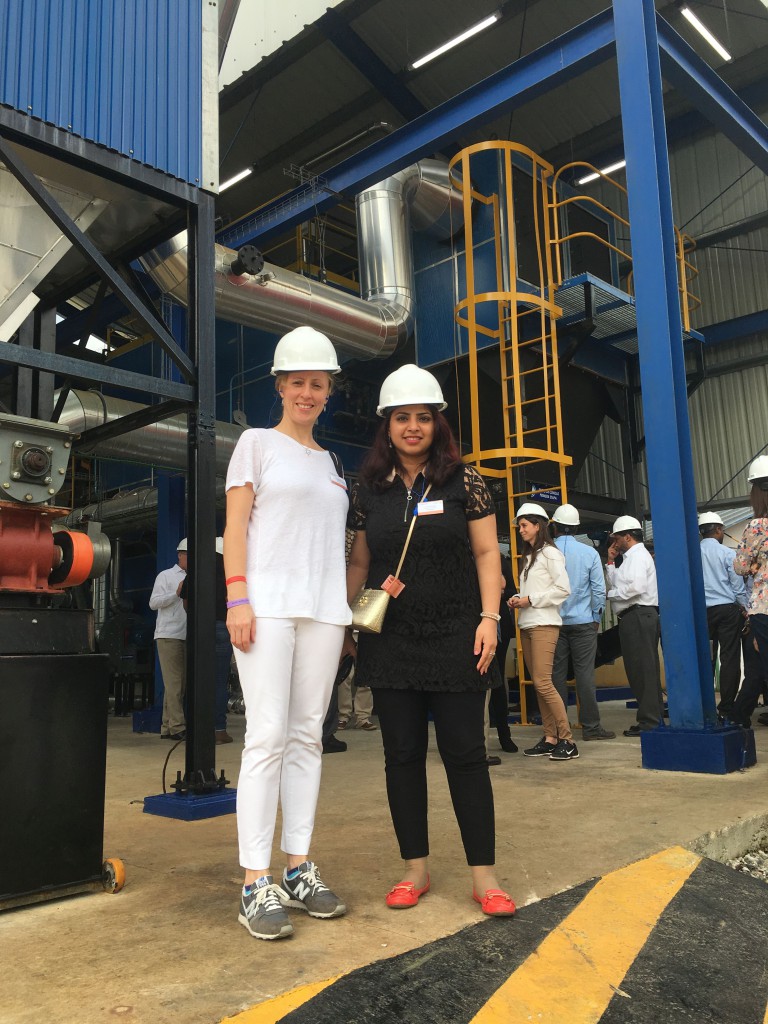
Rural energy access is one of the world’s most pressing issues. On every continent, people are living without electricity and governments are telling those in rural and remote communities that extending national grids to them is simply too expensive. While governments have a central role to play in providing energy for their citizens, researchers need to take the lead in making energy solutions more affordable and accessible.
In partnering with the Smart Villages Initiative, the GYA is affirming its commitment to improving the lives of those who live in some of the world’s most vulnerable regions. The GYA members working on this partnership come from a range of disciplines and backgrounds, and have expertise in various aspects of rural development and stability, renewable energy, waste management, climate change, conservation, food security, and migration.
One of our main aims is to combine our research strengths in ways that highlight the broader socio-economic and cultural value of improved energy access. The SVI-GYA partnership represents a commitment to opening up and maintaining a dialogue about making energy more accessible to those who need it most. We are working together to reduce inequalities, poverty and out-migration and to expand entrepreneurship, sustainability and youth confidence.
N/A
In 2016 and 2017, GYA members participated in several SVI workshops in the Dominican Republic and in Panama and co-organised the wrap-up workshop for the Smart Villages Initiative’s engagement programmes in South Asia and Southeast Asia in Bangkok, Thailand. The workshop explored many science policy topics of interest to the GYA and at the same time enabled discussions around a key topic of central interest to the development of smart villages: the role of energy access in enabling both education and healthcare in villages.
The discussions focused on:
1. The challenges of delivering sustainable off-grid energy services to rural communities and ways of overcoming these.
2. How energy services can be used to enhance the welfare of villagers and to establish smart villages and provide key services and increased incomes through productive enterprises.
The off-grid energy systems evaluated include Pico solar, solar home systems, and mini-grids. Other issues discussed were cross cutting, in particular, access to affordable finance, support to entrepreneurs, capacity building and creating awareness. Some arising issues are specific to village level approach to energy services.
The workshop addressed overall challenges of off-grid energy access in Asia as well as focusing particularly on the nexus issues of energy and health, and energy and education in off-grid rural communities. The link between energy and two important issues, health and education, became apparent during the first two days of the workshop. This workshop emphasised that development must take a bottom-up approach to come up with solutions that are rooted in local requirements and opportunities, and avoid imposing interventions that are not wanted or needed. Pertinent issues included the quality of training for teachers and health workers, as there are often shortages of skilled workers. When technology for health or education is added to the equation, it also means that workers have to know even more and be comfortable with new ways of doing their work.
In 2016 and 2017, GYA members participated in several SVI workshops in the Dominican Republic and in Panama and co-organised the wrap-up workshop for the Smart Villages Initiative’s engagement programmes in South Asia and Southeast Asia in Bangkok, Thailand. The workshop explored many science policy topics of interest to the GYA and at the same time enabled discussions around a key topic of central interest to the development of smart villages: the role of energy access in enabling both education and healthcare in villages.
The discussions focused on:
1. The challenges of delivering sustainable off-grid energy services to rural communities and ways of overcoming these.
2. How energy services can be used to enhance the welfare of villagers and to establish smart villages and provide key services and increased incomes through productive enterprises.
The off-grid energy systems evaluated include Pico solar, solar home systems, and mini-grids. Other issues discussed were cross cutting, in particular, access to affordable finance, support to entrepreneurs, capacity building and creating awareness. Some arising issues are specific to village level approach to energy services.
The workshop addressed overall challenges of off-grid energy access in Asia as well as focusing particularly on the nexus issues of energy and health, and energy and education in off-grid rural communities. The link between energy and two important issues, health and education, became apparent during the first two days of the workshop. This workshop emphasised that development must take a bottom-up approach to come up with solutions that are rooted in local requirements and opportunities, and avoid imposing interventions that are not wanted or needed. Pertinent issues included the quality of training for teachers and health workers, as there are often shortages of skilled workers. When technology for health or education is added to the equation, it also means that workers have to know even more and be comfortable with new ways of doing their work.
Joint report of Wrap-up workshop – Concluding workshop for the Smart Villages Initiative’s engagement programmes in South and Southeast Asia